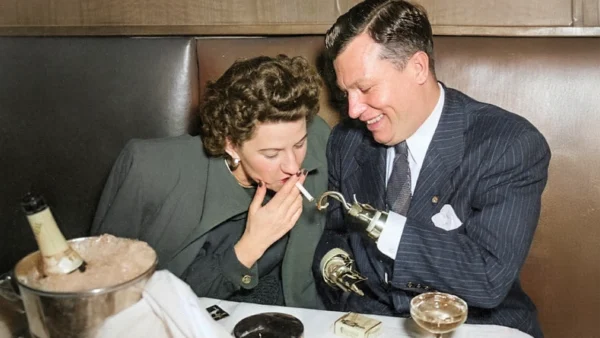Hollywood may be built on dreams, but the truest storytellers are often those who’ve lived outside the spotlight—those whose bodies or minds don’t fit the industry’s default mold. Disabled and neurodivergent actors bring something vital to the screen: raw truth, untapped perspective, and a refusal to conform to expectations. They aren’t just “included”; they’re essential. Their work doesn’t just diversify the cast—it deepens the story of what it means to be human. This list celebrates the trailblazers who’ve reshaped Hollywood from the margins, turning personal difference into narrative power and proving, time and again, that authenticity is not a limitation—it’s the beating heart of art.
Harold Russell
After losing both hands in a World War II training accident, Harold Russell starred as Homer Parrish—a Navy veteran with prosthetic hooks—in The Best Years of Our Lives (1946). His performance earned him two Oscars: Best Supporting Actor and an honorary Academy Award for “bringing hope and courage to his fellow veterans.” He’s still the only person to win two Oscars for the same role.
Russell wasn’t an actor by trade; he was a real-life veteran chosen for authenticity. His groundbreaking role shattered barriers in post-war America and remains a milestone in disability representation on screen.
Trailblazers with Visible and Invisible Differences
Marlee Matlin
Deaf since 18 months old, Marlee Matlin stunned the world by winning Best Actress at the Oscars in 1986 for Children of a Lesser God, and has since starred in shows like The West Wing, Switched at Birth, and voiced Stella on Family Guy. She’s been a Deaf community champion for decades, even earning a 2025 documentary titled Marlee Matlin: Not Alone Anymore.
RJ Mitte
Diagnosed with cerebral palsy at age 3, RJ Mitte brought authenticity to Walter White Jr. on Breaking Bad (2008–2013), then reprised disability-positive roles in Switched at Birth and indie films like Who’s Driving Doug. He also produces, advocates, and tours with United Cerebral Palsy.
Micah Fowler
Also living with cerebral palsy, Micah Fowler plays J.J. DiMeo on ABC’s Speechless (2016–2019), communicating nonverbally like his character. He’s used his visibility to spotlight accessibility and challenge disability stigma.
David Proud
Born with spina bifida and using a wheelchair, British actor David Proud made history as Charlie Johnson on BBC’s Desperados and played Adam Best on EastEnders, increasing authentic wheelchair-using roles in mainstream TV.
Edwin Thomas
British actor with cerebral palsy, Edwin Leo Thomas portrayed Robbie Ross in Rupert Everett’s The Happy Prince (2018), earning acclaim from Variety. He returned from career hiatus to star in series like Victoria and Into the Night.
Mickey Rowe
Legally blind and autistic, Mickey Rowe became the first openly autistic actor to play Christopher Boone in the Tony‑winning Broadway production of The Curious Incident of the Dog in the Night‑Time. He’s also the founding artistic director of the National Disability Theatre.
Actors on the Neurodiversity Spectrum
Kayla Cromer
Living with autism, Kayla Cromer stars as Matilda in Freeform’s Everything’s Gonna Be Okay, becoming one of the first autistic actresses to play an autistic teen on TV—she draws heavily on her own experience.
Rick Glassman
On the autism spectrum, comedian‑actor Rick Glassman plays Rabbi Marcus on Amazon’s As We See It, channeling his real‑life ASD into comedic and heartfelt moments.
Bella Ramsey
During filming of The Last of Us, Bella Ramsey became aware of being autistic, describing the diagnosis as “liberating.” Their candidness brings more nuance to neurodivergent representation.
Anthony Hopkins
Legendary actor Anthony Hopkins revealed a diagnosis of high‑functioning Asperger’s syndrome, crediting it for his hyper-focus and depth in characters across decades of powerhouse performances.
Daryl Hannah
Diagnosed with autism as a child, Daryl Hannah found solace in acting; she’s best known for iconic roles in Blade Runner, Splash, and environmental activism.
Dan Aykroyd
Dan Aykroyd, who’s been open about Asperger’s and Tourette’s, channeled his neurodivergence into creativity—co-creating Ghostbusters and long-running SNL sketches.
Pioneers Behind the Scenes
Ryan O’Connell
Diagnosed with cerebral palsy, writer‑actor Ryan O’Connell created and stars in Netflix’s semi‑autobiographical sitcom Special, bringing honest disability humor to screens less represented.
Selma Blair
After her 2018 multiple sclerosis diagnosis, Selma Blair became a vocal advocate—from her documentary Introducing, Selma Blair to adapting her “Dancing with the Stars” routines to suit her MS.
Why Hollywood Still Has a Way to Go
Despite heroes like Marlee and Micah, research shows 95% of on‑screen disabled characters have been played by nondisabled actors—and only ~2% of TV characters actually have disabilities. Authentic casting remains rare.
Celebrating the Impact
From Oscar glory to streaming sitcoms, each of these performers has cracked open doors—humanizing disability and neurodiversity with humor, edge, and undeniable talent. They remind us storytelling isn’t one-size-fits-all: Hollywood’s missing chapters are being written now.
You won’t find inspirational clichés in their careers—just bold artists using every role as a platform, sometimes for laughs, often for change. Whether it’s delivering one-liners or signing the national anthem at the Super Bowl, they redefine what leading roles can look like—and that’s worth a standing ovation.









